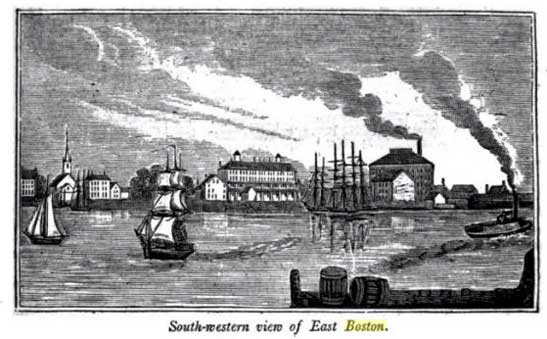Pre-Revolution Activities
Boston Massacre
In 1769 British regiments commenced their duty in Boston which raised the stakes dramatically for SA. On one hand the troops were an easy target for anti-British propaganda. Local newspapers wrote stories of atrocities committed by the troops, needless to say that many of them were severely exaggerated or even fabricated. Adams and his men played a key role in organizing such publications.  The downside was that it became much easier for SA to get arrested by the authorities. Because of his popularity he felt completely protected in Boston, but the law allowed Britain to arrest colonists for treason and try them in England. And even though such extradition would have to be ordered by the local court SA had to be more careful than before. The downside was that it became much easier for SA to get arrested by the authorities. Because of his popularity he felt completely protected in Boston, but the law allowed Britain to arrest colonists for treason and try them in England. And even though such extradition would have to be ordered by the local court SA had to be more careful than before.
Throughout the year, physical confrontations between the troops and the mob became frequent. Often such confrontations were basically bullying by the Sons of Liberty and the troops had to retreat to avoid bloodshed. But for SA the goal was to push the situation until it exploded. It was obvious that in such event casualties will be unavoidable, but the end in his view justified the means.
This is how the famous Boston Massacre occurred on March 1770. The incident that became one of the milestones of the American Revolution started with young boys throwing snow balls and jeers at British soldiered standing on King Street in Boston. The soldiers chased the youth away, but they soon retuned lead by members of the street mob. The argument soon escalated into throwing rocks and garbage. It was not long enough until soldiers started firing, killing three and wounding eight. When the news spread, SA was at the forefront of the town meeting demanding the governor to completely withdraw the troops. The governor at first offered to withdraw one of the two regiments but SA supported by the crowd demanded all or none and both regiments troops were withdrawn from Boston.
The Boston Massacre and the victory of the troop withdrawal made Adams more popular even among moderates. He managed to credibly argue that Bostonians had to arm, form militias and train to defend themselves against the new British troops if they arrived. Governor Bernard, unable to control the situation, was recalled back to Britain. He was replaced by Thomas Hutchinson who became a symbol of loyalty and one of the most hated people in Boston.
Next - The Tea Act >>
|